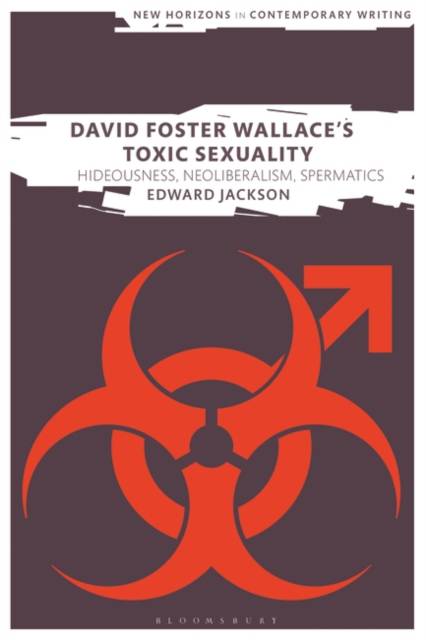
Je cadeautjes zeker op tijd in huis hebben voor de feestdagen? Kom langs in onze winkels en vind het perfecte geschenk!
- Afhalen na 1 uur in een winkel met voorraad
- Gratis thuislevering in België vanaf € 30
- Ruim aanbod met 7 miljoen producten
Je cadeautjes zeker op tijd in huis hebben voor de feestdagen? Kom langs in onze winkels en vind het perfecte geschenk!
- Afhalen na 1 uur in een winkel met voorraad
- Gratis thuislevering in België vanaf € 30
- Ruim aanbod met 7 miljoen producten
Zoeken
€ 69,45
+ 138 punten
Omschrijving
David Foster Wallace's Toxic Sexuality: Hideousness, Neoliberalism, Spermatics is the first full-length study of perhaps the most controversial aspect of Wallace's work - male sexuality. Departing from biographical accounts of Wallace's troubled relationship to sex, the book offers new and engaging close readings of this vexed topic in both his fiction and non-fiction. Wallace consistently returns to images of sexual toxicity across his career to argue that, when it comes to sex, men are immutably hideous. He makes this argument by drawing on a variety of neoliberal logics and spermatic metaphors, which in their appeal to apparently neutral economic processes and natural bodily facts, forestall the possibility that men can change. The book therefore provides a revisionist account of Wallace's attitudes towards capitalism, as well as a critical dissection of his approach to masculinity and sexuality. In doing so, David Foster Wallace's Toxic Sexualityshows how Wallace can be considered a neoliberal writer, whose commitment to furthering male sexual toxicity is a disturbing but undeniable part of his literary project.
Specificaties
Betrokkenen
- Auteur(s):
- Uitgeverij:
Inhoud
- Aantal bladzijden:
- 228
- Taal:
- Engels
- Reeks:
Eigenschappen
- Productcode (EAN):
- 9781350249295
- Verschijningsdatum:
- 27/01/2022
- Uitvoering:
- Paperback
- Formaat:
- Trade paperback (VS)
- Afmetingen:
- 156 mm x 234 mm
- Gewicht:
- 326 g

Alleen bij Standaard Boekhandel
+ 138 punten op je klantenkaart van Standaard Boekhandel
Beoordelingen
We publiceren alleen reviews die voldoen aan de voorwaarden voor reviews. Bekijk onze voorwaarden voor reviews.









